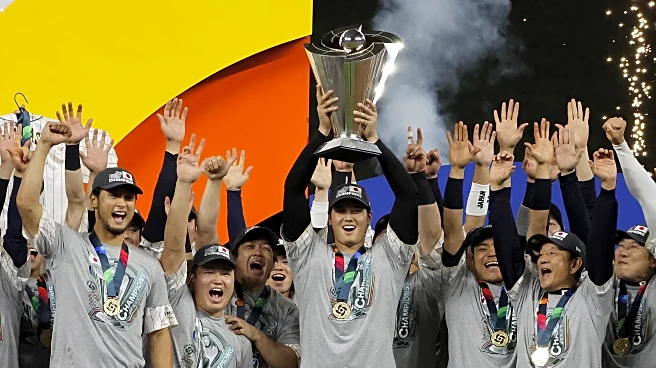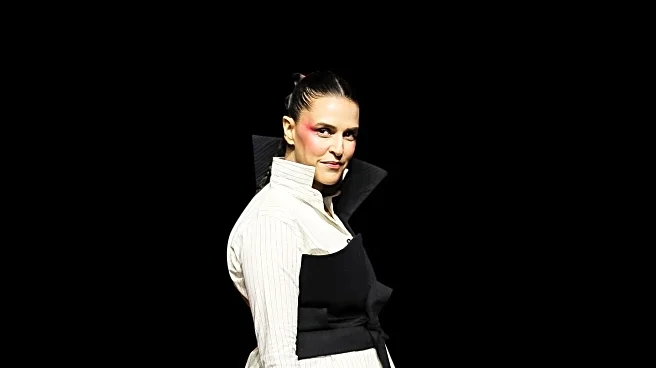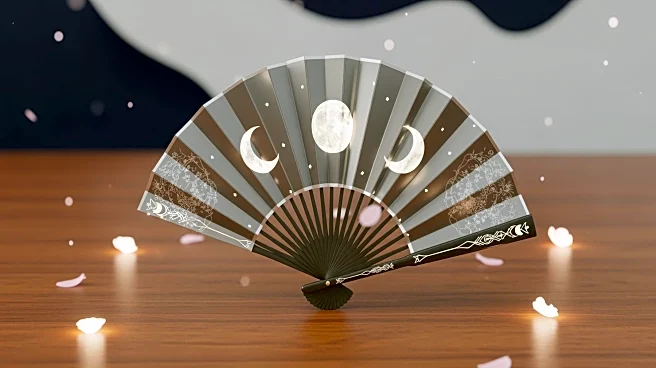What's Happening?
A new study by The Future Laboratory highlights the impact of artificial intelligence and algorithms on the beauty industry, leading to a trend of homogenization. The report, titled 'The Great Beauty Blur,' reveals how social media algorithms, AI editing,
and aesthetics procedures are blurring the boundaries between beauty categories and redefining perceptions of natural beauty. The study notes that symmetrical and familiar-looking faces are being rewarded by social media platforms, contributing to a uniform visual language in beauty. This trend is further driven by the prevalence of AI-generated images and augmented content.
Why It's Important?
The influence of AI and algorithms on the beauty industry is significant as it affects consumer behavior and industry standards. The trend towards uniformity challenges traditional notions of individuality and self-expression, as consumers struggle to differentiate themselves in a market flooded with similar products and digital ideals. This shift may impact the demand for cosmetic procedures and influence the development of beauty products, as companies adapt to changing consumer expectations. The convergence of beauty categories also reflects broader industry trends towards innovation and integration.
What's Next?
As AI and algorithms continue to shape the beauty industry, companies may need to reconsider their strategies to address consumer concerns about individuality and authenticity. This could involve developing products that emphasize personalization and diversity, as well as leveraging technology to create unique consumer experiences. The trend may also lead to increased scrutiny of social media platforms and their role in shaping beauty standards, potentially prompting regulatory action or industry self-regulation. The focus on AI-driven content may drive further innovation in digital marketing and product development.
Beyond the Headlines
The trend towards uniformity in the beauty industry raises ethical questions about the role of technology in shaping consumer perceptions and behavior. The pressure to conform to digital ideals may have psychological implications, affecting self-esteem and body image. As the industry evolves, there may be a cultural shift towards valuing diversity and authenticity, challenging the dominance of algorithm-driven beauty standards. This development may also influence broader societal attitudes towards technology and its impact on personal identity and self-expression.
















